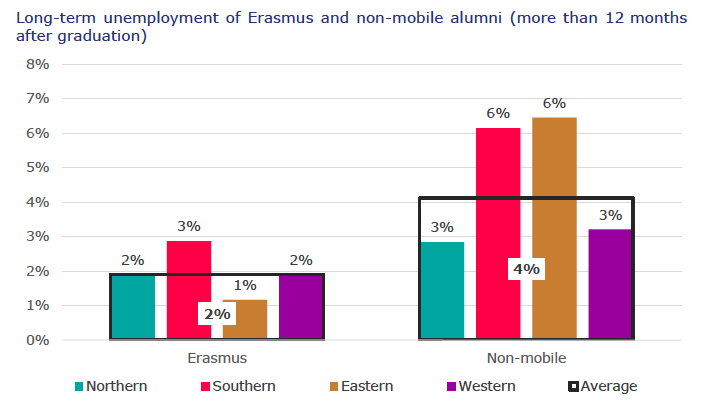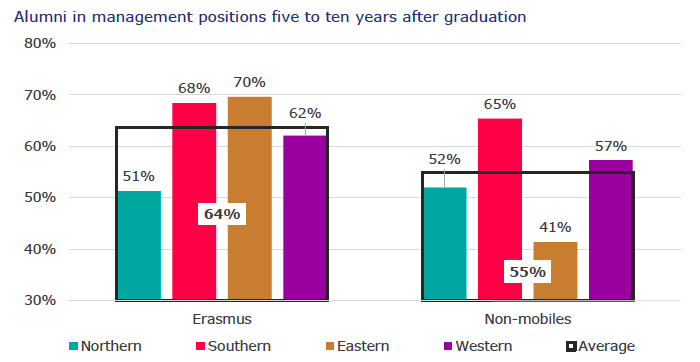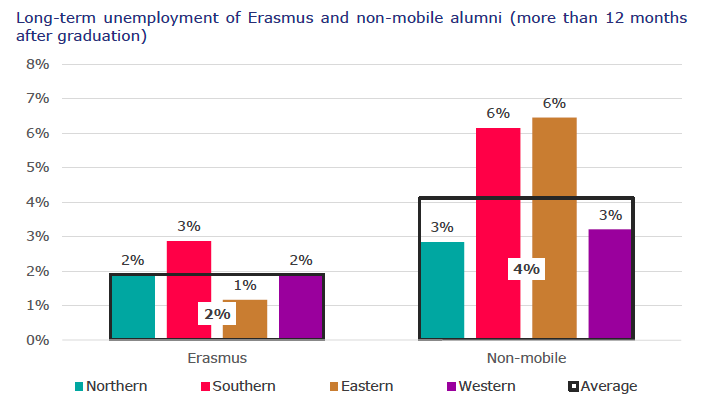Six ways the Erasmus programme changes students’ life
As the academic year begins, many students are probably considering an international exchange or a job placement in another European country with the Erasmus programme. Learning another language, meeting new people, embarking on the first big adventure abroad are among the reasons why students choose this option. But there is more to that. After 30 years in operation, studies have shown that an Erasmus exchange can have much deeper impacts in life. Here are six key ones.
1. It improves personality traits that are also useful at work. An impact analysis based on responses of 71,368 students reveals that the average personality change occurring in six months of an Erasmus is equivalent to a change that would normally happen over four years of life. Experts explored in particular what this means for tolerance of ambiguity, curiosity, confidence, serenity, decisiveness and vigour – traits that employers across Europe seek the most. It was found that, compared to non-mobile students, Erasmus alumni show higher values for the six traits, even before departure. Upon return, the gap is bigger. The change is particularly significant for Western Europeans, who start the programme with the ‘least employable’ personalities and finish with the highest level of improvement. On their part, Northern Europeans do not see much change, probably because they are used to other forms of international exposure. Soft skills such as communications and the ability to adapt to new situations further develop through mobility too.
2. It reduces chances of long-term unemployment. Although no immediate effect has been found in employment immediately after graduation, data show that Erasmus alumni are less likely to experience long-term unemployment along their life. At country level, this advantage is highest in Hungary and Portugal. In Eastern Europe, students participating in the programme reduce the risk by 83% compared to those who have not been abroad. In Southern Europe, former Erasmus students are half as likely to remain long-term unemployed than their counterparts.

3. It improves career prospects for the future. Another area where there is a significant difference is the level of professional responsibility achieved few years after graduation: 64% of Erasmus alumni hold a management position, compared to 55% non-mobile students. In Eastern Europe the difference is even larger (70% to 41%) and in Hungary, more than nine out of ten Erasmus alumni reach managerial positions while only four out of ten non-mobile students do. In addition, in Bulgaria 50% of employers claim to give higher salaries to employees with international experience.

4. It increases the likelihood to move to another country. The study found that 40% of the Erasmus students moved country at least once since graduation, compared with 23% of peers without such experience. 93% (compared with 73% of non-mobile students) could envisage living abroad.
5. It makes people feel more European. Eighty per cent of students recognised that an Erasmus exchange increases the feeling of being related to Europe. This perception is especially strong in Southern and Eastern Europe (both 85%), with Bulgaria, Portugal and Italy at the top (respectively 90%, 89% and 87%), followed by the United Kingdom (88%). But the share of Erasmus alumni that relate strongly to Europe is very similar in all regions.
6. Finding… love. Personal life is also influenced. When the survey took place, 32% of the Erasmus alumni had a partner of a different nationality than their own, nearly three times more than among non-mobile alumni (13%). Graduates from Southern Europe are most likely to have international relationships (37%). But on a country level most Erasmus alumni in transnational relationships were in the UK (57%) and Austria (52%).

Silvia Martelli © all rights reserved.
Photo: Students at New Bulgarian University, Sofia. By Nikolay Doychinov. © European Union , 2017. EC Audiovisual Service.
Graphs from the report “The Erasmus Impact Study Regional Analysis” by Che Consult for the European Commission, Luxembourg, 2016.




